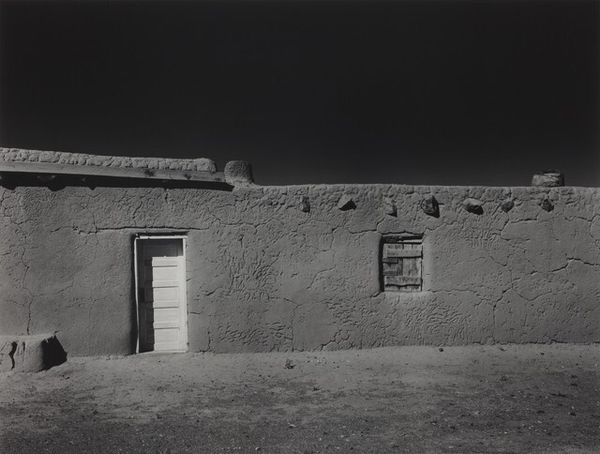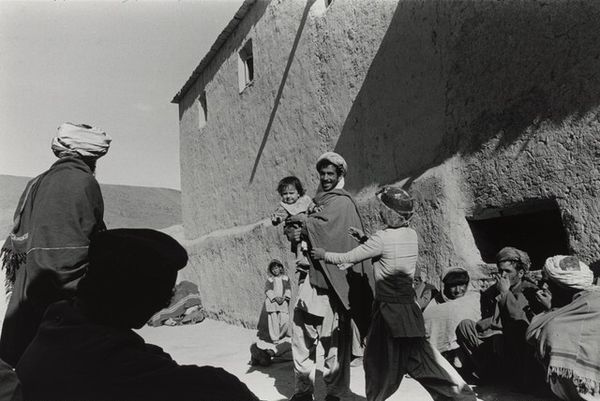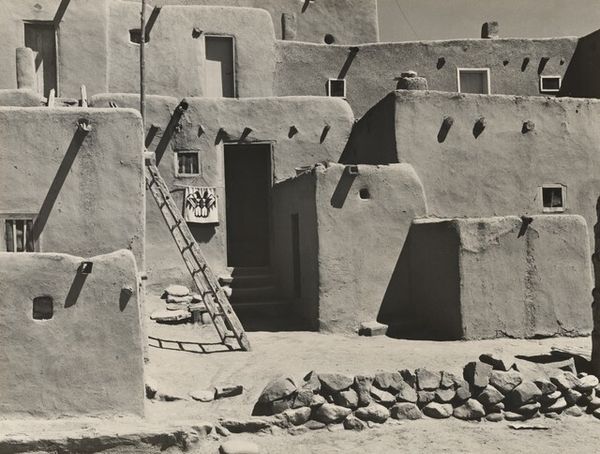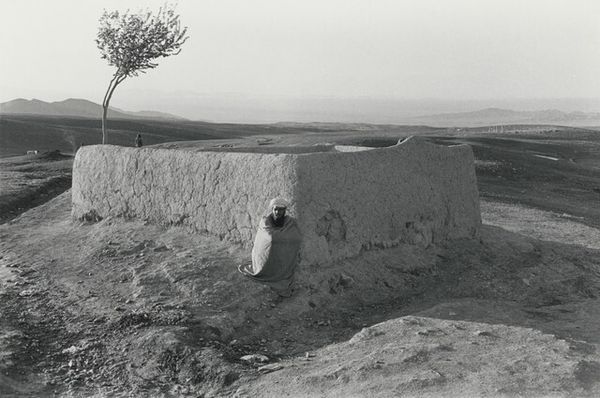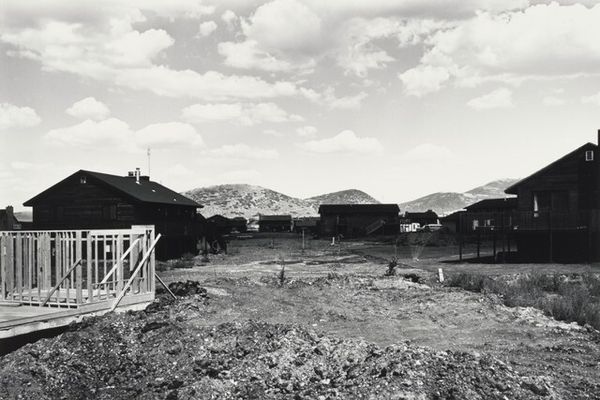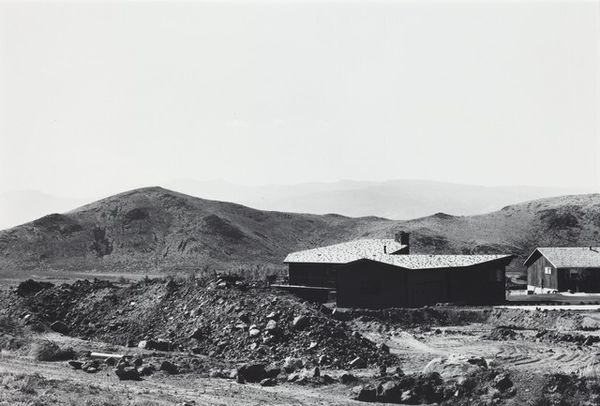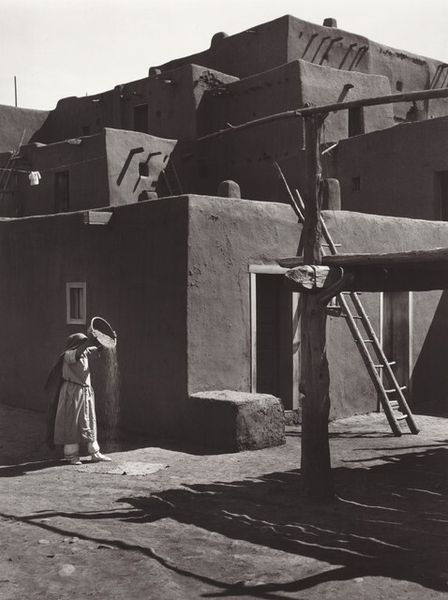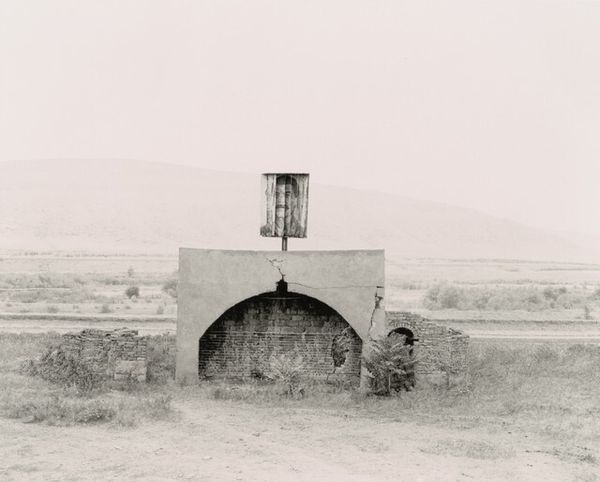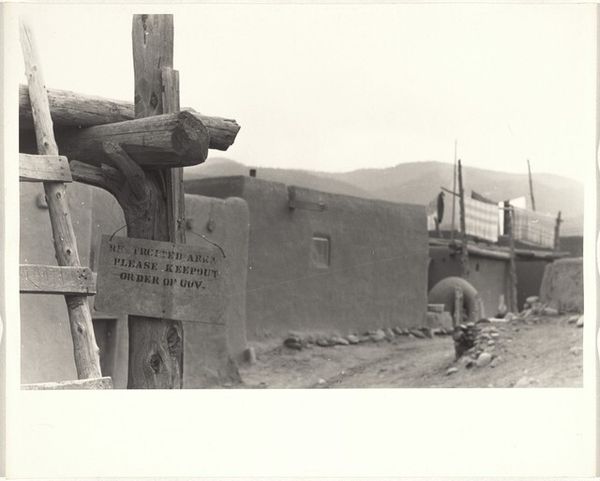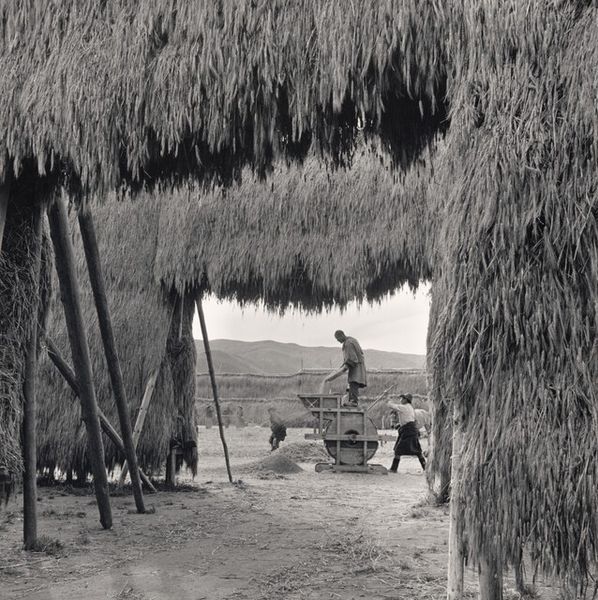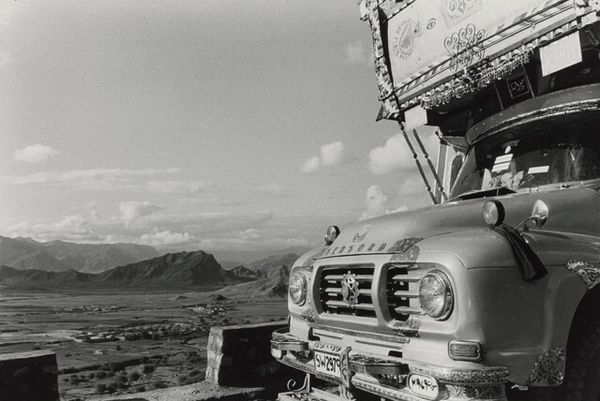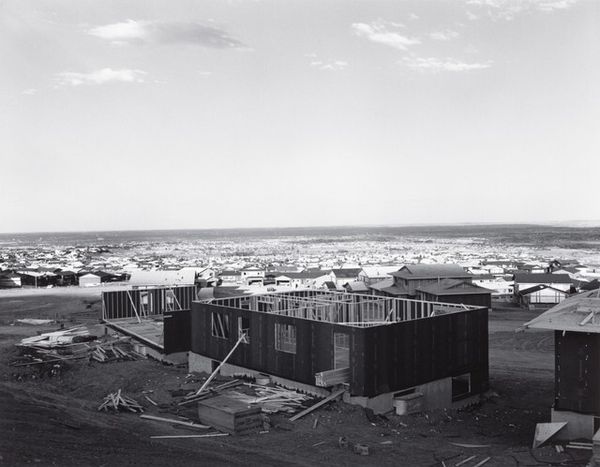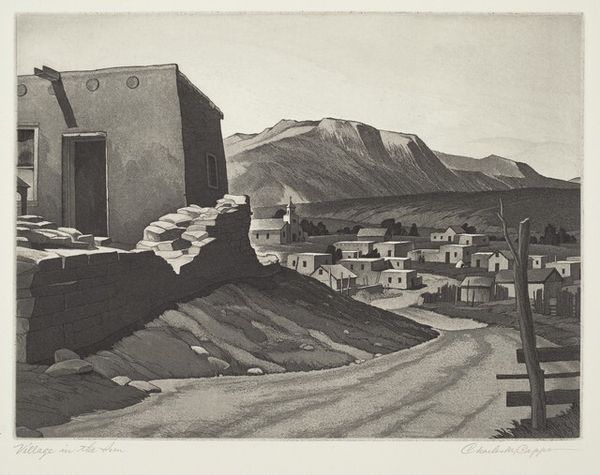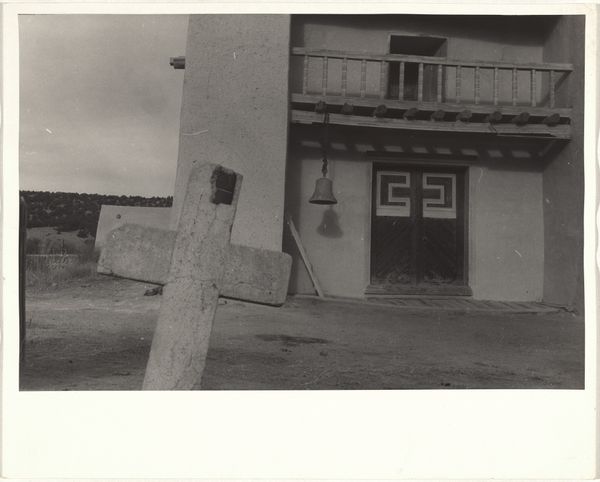
photography
#
black and white photography
#
sculpture
#
landscape
#
street-photography
#
photography
#
black and white
#
monochrome photography
#
monochrome
#
realism
#
monochrome
Dimensions: image: 19 × 28 cm (7 1/2 × 11 in.) sheet: 24.5 × 35 cm (9 5/8 × 13 3/4 in.)
Copyright: National Gallery of Art: CC0 1.0
Editor: This black and white photograph, "Copacabana, Bolivia" by Ed Grazda, taken in 1975, presents a landscape of buildings against the backdrop of distant mountains. The strong contrast between light and shadow gives it an almost surreal feeling. What draws your eye, and how do you interpret this work? Curator: It's that very contrast, isn't it? Grazda's sharp realism feels like a dream caught in aspic. The high-key lighting washes the scene with an almost unbearable clarity, except where these deep, encroaching shadows assert themselves. They're like figures—silent witnesses—perhaps even metaphorical inhabitants of a place that feels strangely deserted despite its suggestion of habitation. And those mountains in the back, serene and immutable, watching the slow dance of light and dark... do you feel a slight theatrical quality here, perhaps something staged or posed? Editor: Yes, the mountains create an amazing backdrop, but the shadows are almost like characters in a play. Curator: Exactly! A play where the set is everything and the players are merely suggested. What I love most is how Grazda avoids sentimentality, even though there’s this profound sense of place. Have you noticed how the monochrome adds to the stark, timeless quality, lifting it out of simple documentation? Editor: That's a great point, it does make it seem timeless, rather than just a record of a specific place in 1975. Curator: Photography can trick us into thinking it’s capturing reality but it's often an illusion of reality. Gazda shows the way with light and dark to evoke, almost summon, the feelings inherent in a landscape that could have just passed for ordinary. What I see is the essence of the place. Don't you think? Editor: Definitely. I'll never look at black and white landscapes the same way again. Thank you. Curator: And I was reminded never to trust my first impressions - photography shows me how relative and ultimately changeable these feelings may be.
Comments
No comments
Be the first to comment and join the conversation on the ultimate creative platform.
